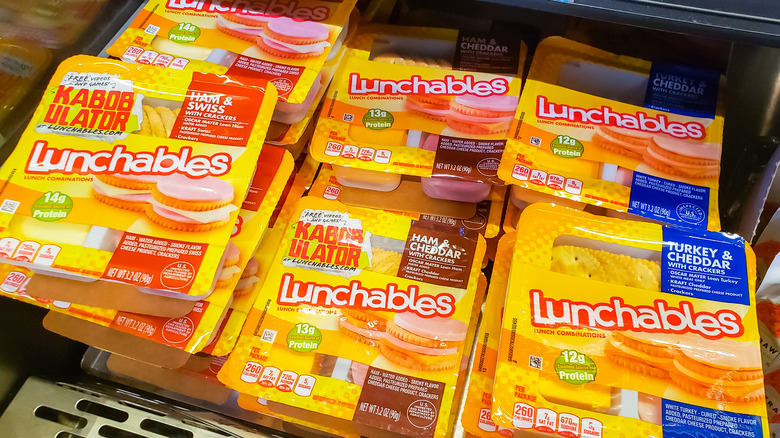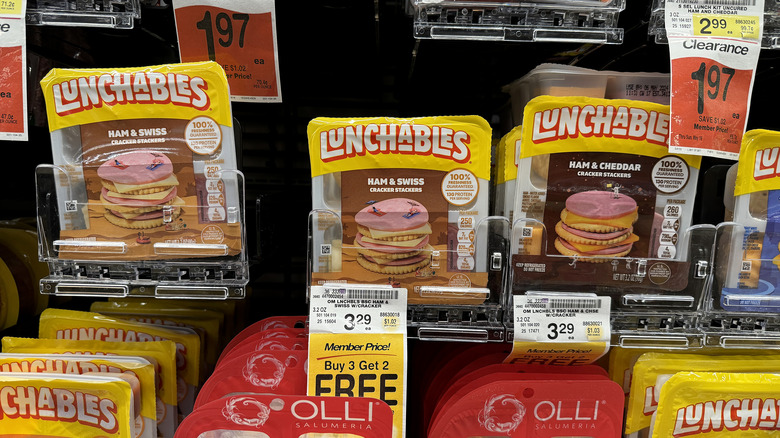Lunchables Are, Disturbingly, Being Linked To High Levels Of Lead
For many, any day you got to bring a Lunchable to school as a kid was a good day. It was an easy meal that was typically rounded out with a Capri Sun and a miniature candy bar. Still popular amongst children, many grown-ups have passed the joy of Lunchables down to the next generation, and some schools have even begun offering similar lunch kits to students in the cafeteria. Unfortunately, these may be among the worst foods you could add to your kid's school lunch. Findings from Consumer Reports, released on April 9, suggest that Lunchables and similar lunch kits contain a concerning amount of lead.
To determine whether or not these lunch kits were safe for children to eat, Consumer Reports tested those made by Lunchables, Armour LunchMakers, Good & Gather, Greenfield Natural Meat, and Oscar Mayer for evidence of heavy metals and phthalates (chemicals employed to strengthen plastic), also noting each kit's sodium levels. While none of the brands had particularly promising results, what makes Lunchables so concerning is that, out of the bunch, it seems its lead levels were by far the highest. Its Turkey and Cheddar Cracker Stackers, for example, contain 74% of California's maximum allowable dosage level.
Experts advise against giving kids lunch kits
While prolonged lead exposure is unhealthy for anyone, infants and young children are particularly susceptible to its effects. Exposed adults may experience issues related to their kidneys, blood pressure, and cognition, but small children who are affected may experience stunted brain development, often leading to learning and behavioral disorders.
Because lead can build up in a person's system, regularly consuming products with high levels of the element increases the likelihood of poisoning. That said, lead typically finds its way into food through the environment in which it was grown and packaged — whether from machinery in the manufacturing facility or from the packaging itself — so for this reason, the federal government has refrained from setting firm regulations.
According to Consumer Reports, Kraft Heinz — the company behind Lunchables, Oscar Mayer, and P3 — responded to the findings, saying, "All our foods meet strict safety standards." While this is technically true, the Consumer Reports chemist who led the testing, Eric Boring, PhD, said, "We don't think anybody should regularly eat these products, and they definitely shouldn't be considered a healthy school lunch."

